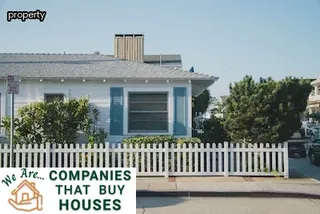Understanding the difference between normal wear and tear vs damage is an important part of navigating rental agreements in Georgia. Normal wear and tear, which is expected and considered normal aging of a property, is typically not the responsibility of either the landlord or tenant.
Damage on the other hand, which is caused by something other than ordinary use such as neglect or abuse, should be reported to the landlord immediately and may require repairs. The distinction between normal wear and tear and damage can be difficult to determine so it is important for landlords and tenants to keep records that document any changes in condition to ensure there are no misunderstandings in later months.
Additionally, when evaluating any potential damage it is important to consider whether the cause of the damage was within reasonable control of the tenant or landlord. If it can be proven that a tenant or landlord was at fault for any damages it may be necessary for them to cover repair costs associated with those damages.

Property damage can be a major source of stress and disagreement between landlords and tenants in Georgia. It's important to document the condition of the property before and after tenancy to avoid disputes.
Before leasing, landlords should inspect the property, take photos or videos, and make notes of any existing damage or wear and tear. Tenants should also inspect the property upon move-in and create a list of anything that is already damaged, so that it does not become their responsibility.
When tenants move out, both parties should re-inspect the property together and compile a list of any new damages that occurred during their tenancy. Photos or videos taken at this time will further protect both parties from future disagreements regarding who is responsible for the damages.
With proper documentation, landlords and tenants in Georgia can protect themselves from costly disputes over property damage.
In Georgia, both landlords and tenants are responsible for certain types of property damage. The responsibility for repair costs depends on the type of damage, who caused the damage, and the terms of the lease agreement.
First and foremost, it is important to determine who is responsible for the damage before incurring any repair costs. In general, tenants are responsible for damages to their own personal property and anything they have added to the rental unit such as fixtures or decorations.
Landlords may be liable if they were aware of a problem or defect in the rental unit when they rented it out to their tenant. Additionally, landlords are typically responsible for any structural damage that occurs due to wear-and-tear over time or from external sources such as weather or pests.
Landlords can also be held liable for any hazardous conditions on their property that could cause injury or harm to their tenant's property. It is important to note that all repair costs are subject to the terms outlined in the lease agreement which should clearly state who is responsible for what type of repairs in specific scenarios.

When dealing with property damage in Georgia, it is important to understand how the security deposit works and how to handle it properly. A security deposit is an amount of money that a landlord requires from their tenants as a form of insurance in case of any damages to the property.
Security deposits are held by the landlord until the end of the lease, at which point they will inspect for any damages that have been done during the tenancy period and deduct any repair costs from the security deposit if necessary. It is important for both landlords and tenants to know their rights when it comes to handling security deposits in the event of property damage, as this can help avoid disputes and expensive legal fees.
Landlords should be aware that a tenant’s security deposit cannot exceed two months’ rent according to Georgia law, and tenants should keep records of all payments made towards their security deposit. If there is significant property damage caused by a tenant, landlords have the right to withhold all or part of the deposit after proper documentation has been provided.
Tenants should also ensure that they receive an itemized list before leaving so they can dispute any deductions if necessary.
Landlords can reduce the risk of property damage in Georgia by taking several precautionary steps. Firstly, they should ensure that tenants understand their responsibilities of maintaining the condition and cleanliness of the property.
This includes providing clear instructions on how to take care of furniture and appliances, and outlining expectations for proper waste disposal. Additionally, landlords should regularly inspect the property for any signs of deterioration or damage to ensure tenants are not neglecting their duties.
If any issues arise during an inspection, landlords should address them promptly. Landlords can also protect themselves from potential damages by properly screening tenants before signing a lease agreement, as well as requiring a security deposit which is refundable at the end of a tenancy if all obligations are met.
Finally, landlords should outline a policy in their lease agreement specifically addressing how minor repairs will be handled in order to avoid any disputes between landlord and tenant. By following these steps, landlords can minimize their risk of property damage in Georgia.

Tenants and landlords both have certain rights and obligations when it comes to property damage in the state of Georgia. It is important for both parties to be aware of state laws so they can understand their rights and how to handle any property damage that may occur.
As a tenant, you must promptly notify your landlord if any damage has been done to the rental property. The landlord must then assess the property and repair all damages as soon as possible.
Tenants should keep records of all repairs or replacements made on the rental property, as well as any damages that were not fixed by the landlord. Landlords, on the other hand, are responsible for making sure that all damages are repaired in a timely manner and that tenants are not held accountable for any damages caused by normal wear and tear or from an act of nature such as fire or flooding.
Both parties have an obligation to cooperate with each other in order to ensure that any potential issues are addressed quickly and fairly.
When it comes to rental property damage in Georgia, the line between what is considered normal wear and tear and excessive damage can be blurry. Generally, normal wear and tear consists of items that naturally degrade over time due to everyday use, such as carpets that need replacing after years of foot traffic.
Excessive damage goes beyond what is expected from day-to-day use and can include things like large holes in walls, broken windows or doors, graffiti, significant water damage or general negligence on the part of the tenant. Landlords should document any noticeable damages to a rental property before tenants move in and upon their exit so that they are able to accurately assess whether a repair bill should be charged to the tenant or not.
It's also important to note that Georgia law requires landlords to make necessary repairs within 30 days if they are reported by the tenant.

When it comes to property damage in Georgia, landlords and tenants alike should be aware of their rights and responsibilities. In general, a security deposit can be kept by the landlord if the tenant has caused intentional damage to the property or if reasonable wear and tear is not accounted for.
In terms of intentional damage, this includes any damage that was done deliberately with the intent to harm or destroy the property. In addition, reasonable wear and tear is defined as any normal deterioration that occurs over time due to everyday use of the property.
Landlords must provide tenants with an itemized list of damages within 30 days of termination of tenancy in order for them to retain any part of the security deposit. If no such list is provided, then landlords cannot keep any portion of the security deposit.
Furthermore, landlords must return any remaining part of the deposit within one month after termination date. Although exceptions may apply depending on individual cases, these are generally accepted guidelines when it comes to handling security deposits due to property damage in Georgia.
When it comes to property damage caused by tenants in the state of Georgia, there are a variety of legal considerations for both landlords and tenants. Understanding the law is essential for protecting your rights as a landlord or tenant when it comes to property damage in Georgia.
It's important to understand that the state has specific laws and regulations about who is responsible for any damages. Generally, landlords may be held legally responsible for damage caused by tenant-induced negligence, such as poor maintenance or failure to properly address known problems with the premises.
Tenants, on the other hand, may be held liable if they are found to have intentionally damaged the property, failed to pay rent on time, or violated the rental agreement in some way. Furthermore, Georgia law allows landlords to charge a security deposit that covers any potential damages resulting from the tenant's stay.
Lastly, both landlords and tenants should be aware of their rights should they need to pursue legal action against each other due to property damage claims in Georgia.

Once a landlord has encountered an incident of excessive property damage, there are certain steps that must be taken in order to properly handle the situation. First, the landlord should contact local law enforcement and file a police report.
This is beneficial for both parties as it provides documentation of the incident and serves as proof of any potential legal action taken by either party. Next, assess the damages and repair costs that need to be addressed.
Damage caused by tenants can range from minor repairs to major renovations, so it’s important to accurately estimate the cost of necessary repairs before proceeding with any actions. Lastly, communicate with both the tenant(s) involved and their security deposit company regarding payment for the damages.
Georgia laws dictate what actions landlords can take when requiring tenants to pay for damages; therefore it’s important to understand all options available before proceeding with collections or potential legal action against a tenant or their security deposit company.
In Georgia, a landlord is legally able to make repairs to the rental property without prior notice when it is necessary for the safety and security of their tenant. This can include making repairs or replacing broken locks or windows, installing smoke detectors, and fixing electrical issues.
Landlords are also able to make repairs that are required by law to ensure that Georgia's safety standards are met. However, it should be noted that tenants must still be given reasonable notice before any extensive repair work is done on the property.
Additionally, landlords may not enter the premises without permission from their tenant unless there is an emergency situation that requires immediate attention. Finally, landlords must make sure to provide their tenants with a written record of all repairs made so that the tenant can document any future problems related to the work performed.

Property damage can be costly and disruptive for all parties involved, so it's important to understand liability in the case of negligence. In Georgia, landlords and tenants may be held liable for property damage depending on who was negligent.
If a tenant causes intentional or careless damage to a rental property, the landlord is generally responsible for repair costs unless specified otherwise in a lease agreement. On the other hand, if the landlord negligently fails to maintain the property or fails to comply with local building codes and safety regulations, then they are usually liable for any resulting damage.
It's also important to note that neglecting routine maintenance may constitute negligence on the part of both landlord and tenant depending on the circumstances. Understanding who is responsible for property damage in Georgia can help landlords and tenants avoid costly legal disputes down the line.
Georgia lease termination laws are complex, and landlords and tenants alike must understand their rights and responsibilities when it comes to property damage. In cases where significant property damage has occurred, tenants have the right to terminate their lease agreement or request a rent reduction from their landlord.
Landlords also have certain legal obligations in the event of property damage, such as repairing any damages or providing adequate notice to tenants about any changes made to the rental agreement. Georgia law provides guidance on how landlords and tenants should handle these types of situations, including provisions for dispute resolution, notice requirements for lease termination due to significant property damage, and potential penalties for violations of these laws.
Understanding Georgia's laws regarding lease termination due to significant property damage can help both landlords and tenants protect their interests while ensuring compliance with state regulations.

In Georgia, both landlords and tenants must adhere to the state's regulations when it comes to deducting repair costs from security deposit funds. Specifically, landlords must provide tenants with an itemized list of any deductions taken from their security deposit within 30 days of the lease termination date.
Additionally, they must ensure that all deductions are reasonable, necessary and related to any damage caused by the tenant or those in their party. Furthermore, landlords cannot make deductions for normal wear and tear that would have otherwise occurred over time.
Any costs for repairs due to damage caused by natural disasters or other extraordinary circumstances can only be deducted if the tenant is provided with prior written notice of such a deduction. Lastly, no additional charges may be imposed on tenants beyond what is allowed in the Security Deposit Act.
If a tenant in Georgia makes a claim to their landlord concerning normal wear and tear or damage, there are certain strategies that can be implemented by both parties. It is important to properly document any damage that has occurred and take pictures of the affected area, as well as provide an itemized list of damages for review.
Tenants should be aware that landlords are not responsible for any damages caused by tenants themselves, family members, or guests. Landlords should consider providing an itemized list of expected wear and tear prior to the tenant moving in so that all parties are aware of what is considered normal wear and tear.
In addition, it is beneficial for both parties to discuss the dispute in person or via email and reach an agreement before taking legal action. This will save time, money, and potentially preserve the relationship between landlord and tenant.

When it comes to billing tenants for property damage or repairs in the state of Georgia, both landlords and tenants must adhere to certain requirements. Landlords must provide written notification to their tenants before billing them for damages or repairs.
This notification should include a detailed description of the work that needs to be done, an itemized list of all costs associated with the repair or damage, and an explanation of why the tenant is being charged for these expenses. Tenants must also provide written authorization for landlords to complete any necessary repairs before any work can begin.
Additionally, all receipts and invoices related to repairs should be kept on file by the landlord as proof of payment and documentation that the bill has been paid in full. It is important for both parties to keep accurate records in order to avoid any potential disputes over property damage and repair costs.
Effective communication between landlords and tenants is essential in ensuring successful property management. Landlords must make sure that tenants are aware of their responsibilities for maintenance and repairs in the rental agreement, including what types of damage the tenant is responsible for.
It's also important to clearly explain when maintenance or repair requests should be submitted, who is responsible for calling a service technician, and what procedures should be followed if additional damage occurs while fixing an existing problem. To ensure that all parties involved understand their roles and rights regarding any property damages, it's imperative that landlords communicate with tenants regularly throughout their tenancy.
This could involve regular inspections to assess the condition of the rental unit and making sure that tenants understand what they need to do if they notice any potential problems with the property. Additionally, landlords should keep detailed records of any repairs or maintenance requested by the tenant as well as proof of payment for those services which can help avoid disputes over responsibility for damage in the future.

In Georgia, there are specific statutes in place to ensure that landlords and tenants are both responsible for the repair and maintenance of property. If either party fails to comply with these statutes, they may be subject to certain consequences.
Depending on the severity of non-compliance, a landlord or tenant can be held liable for civil damages as well as criminal penalties. For example, if a tenant has caused extensive damage to a rental property, a court may order the tenant to pay for any repairs or replacements out of pocket.
On the other hand, if a landlord has failed to adequately maintain their property and it results in damages, they may be subject to fines from state or local government agencies. In some cases, either party may face eviction if they do not adhere to the terms outlined in their lease agreement.
It is important for landlords and tenants in Georgia to understand all applicable laws so that they can avoid potential penalties associated with non-compliance.
When it comes to rental property damages, insurance providers play an important role in helping landlords and tenants find a resolution. In Georgia, both parties must be aware of the terms of their agreement regarding any damage that may occur during the tenancy.
Landlords are required to provide a certain level of insurance coverage for any physical damage to the property, as well as losses due to theft or vandalism, while tenants should carry their own renters insurance policy in order to cover any potential liabilities they may have. Insurance can help all involved parties by covering costs associated with repairs or replacements needed after a tenant vacates the unit.
In addition, some policies will cover legal expenses incurred if one party takes legal action against another. While insurance cannot prevent disputes between landlords and tenants over property damage matters, it can be a useful tool in resolving them in a timely and efficient manner.

When it comes to resolving disputes over rental property damage in Georgia, both landlords and tenants need to understand the potential solutions available. One alternative solution is mediation, which is a process where an impartial third-party mediator facilitates communication between both sides.
This can help to identify the underlying causes of the dispute and can often be more cost-effective than taking legal action. Another option is arbitration, which involves a neutral arbitrator who acts as a judge and makes decisions regarding the dispute.
Both parties agree to accept the decision of the arbitrator and are legally bound by it. Other alternatives include negotiation or informal talks in order to find common ground and reach an agreement that works for both parties.
Ultimately, understanding these alternative solutions is essential for landlords and tenants when it comes to handling property damage in Georgia.
It is possible for a landlord in Georgia to sue a tenant for damages caused to the property. Georgia's Landlord and Tenant Act outlines the procedures and rights of both parties in cases of property damage.
A landlord may pursue legal action against a tenant who has caused willful or negligent damage to the rental property. If a tenant causes more than $500 in damages, the landlord has the right to take legal action against them.
For any damages caused by tenants that are less than $500, landlords have the option of deducting these costs from their tenant's security deposit. It is important that landlords understand their rights and obligations regarding property damage before taking any legal action against tenants in Georgia.

In Georgia, landlords and tenants are both responsible for the maintenance and repair of rental property. According to the Georgia Code, tenants must not willfully or negligently damage any portion of the rental property.
Additionally, landlords must make sure that all repairs necessary for the property are completed in a reasonable amount of time. If a tenant does cause property damage, they are expected to pay for it in accordance with the law.
Landlords may also be required to pay for damage caused by negligence if their actions or inaction led to the destruction. It is important to understand that certain types of damage may require specific procedures in order to fix them properly.
Therefore, it is essential for both parties to know what Georgia code applies to any damage caused to rental property so they can take appropriate action and avoid potential legal issues.
Georgia Code Section 44-7-33 is one of the most important pieces of legislation for landlords and tenants in the state. It outlines the process for handling property damage that may occur during a tenancy.
This code section establishes who is responsible for any damage to the premises, what must be done to repair or replace damaged property, and how damages should be paid. Landlords are required to maintain their rental properties in good condition, while tenants must reimburse landlords for damages caused by negligence or abuse.
Additionally, this section offers guidance on how disputes between landlords and tenants over property damage should be handled. Understanding Georgia Code Section 44-7-33 is essential for both landlords and tenants looking to navigate issues surrounding property damage effectively.
Georgia Code Section 44-7-35 is the legal basis that governs the handling of property damage in the state. This code outlines a landlord’s responsibility for providing reasonable protection for tenants against damages to their personal property, as well as the tenant’s responsibility for reimbursement when the damage is caused by their negligence.
It also states that landlords must provide reasonable notice to tenants of any potential damages and allow them reasonable time to repair or replace damaged items before charging a fee or withholding rent. In addition, it requires landlords to provide a written inventory of all items damaged or removed from the rental unit prior to termination of tenancy.
Finally, Georgia Code Section 44-7-35 outlines remedies available for both landlords and tenants in cases involving property damage disputes.